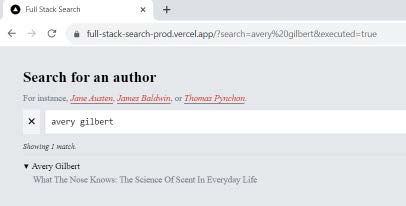Mind-raped by Mark Zuckerberg and the Borg
Generative AI repackages other people’s creativity
AI is having a moment. You can summon up “original” artwork by typing a request into an AI-based image generator. You can ask ChatGPT to write your term paper or your legal brief or the diversity statement for your application to Harvard College. The possibilities have Wall Street excited. AI is the biggest thing since the Dot Com Bubble of 2000.
AI is also the most brazen example yet of the tech industry’s shameless appropriation of other people’s intellectual property. Let’s call it what it is: theft.
An article in The Atlantic (yeah, I know, but credit where credit is due) by Alex Reisner revealed that Mark Zuckerberg’s Meta, among others, used a data set of more than 183,000 books to train its generative AI algorithm. According to Reisner the data set “known as ‘Books3,’ was based on a collection of pirated ebooks, most of them published in the past 20 years.”
In other words, not only did Zuck not ask author consent to use entire scanned books still under copyright, but he used pirated ebooks to avoid paying the author a royalty.
If you’re going to fuck me, Zuck, at least buy a legit copy of my book first.
Does it sound like I’m taking this personally? Damn right.
Based on Reisner’s research, a searchable list of the pirated Books3 database is available online. And yes, my book, What the Nose Knows: The Science of Scent in Everyday Life, is in there. So I’ve been ripped off twice: once by the sociopaths behind Books3 and again by Mark Zuckerberg and Meta.
But it doesn’t end there. Zuck’s Borg has illegitimately vacuumed up works by other authors in the fragrance and flavor arena. Here’s a few of them:
Mandy Aftel, Essence and Alchemy
Mandy Aftel, Fragrant: The Secret Life of Scent
Daniel Patterson & Mandy Aftel, The Art of Flavor
Patrick Süskind, Perfume: The Story of a Murderer
Barbara Herman, Scent and Subversion
Radhika Jha, L’Odeur
Diane Ackerman, A Natural History of the Senses [and nine other titles]
Rachel Herz, That’s Disgusting
Rachel Herz, Why You Eat What You Eat
Jean-Claude Ellena, The Diary of a Nose: A Year in the Life of a Parfumeur
Luca Turin, The Little Book of Perfumes
Luca Turing & Tania Sanchez, Perfumes: The Guide 2018
Chandler Burr, The Perfect Scent
Michael Pollan, The Omnivore’s Dilemma
Michael Pollan, The Botany of Desire
Nonfiction, fiction, memoir—they’ve all been stuffed into the hopper of Zuck’s meatgrinder.
Any lazy high school student, any unscrupulous editor needing extra copy, any third-rate academic trying to dress up a crappy manuscript, can benefit from the creative labor of these authors—who remain uncompensated and unacknowledged.
It can go further: Mark Zuckerberg, or some other alien in a human skinsuit, could create and promote an entire podcast featuring a panel discussion between an ersatz Jean-Claude Ellena, a pseudo-Luca Turin, and a fake Rachel Herz.
There are already lawsuits pending, some by celebrity authors. The Authors Guild has published an open letter calling on leaders in the generative AI field to “obtain consent, credit, and fairly compensate writers for the use of copyrighted materials in training AI.”
If you want to know who the miscreants are, the letter is addressed to Sam Altman, CEO, OpenAI; Sundar Pichai, CEO, Alphabet; Mark Zuckerberg, CEO, Meta; Emad Mostaque, CEO, Stability AI; Arvind Krishna, CEO, IBM; and Satya Nadella, CEO, Microsoft.
And yes, I signed it.



This is shameful what they have done. No ethics at all.
well done for standing up for so many. I did not even think of this! (well, I never written anything of note either, but theft of big fish from the public is something that angers me terribly!! I wonder if they will ever be held accountable?)